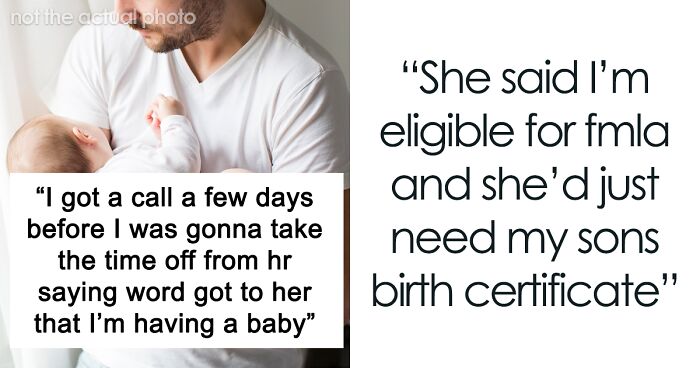
New Dad Is Confused After Company Asks For His Son’s Birth Certificate, Starts To Get Suspicious About Their Motives
Among the turns our lives take, becoming a parent is one of the most significant ones. However, for new dad and Reddit user Comfortable_Area3910, it has been clouded by some shady stuff at the office.
A few days ago, he made a post on the subreddit r/antiwork, explaining that his superiors are, for some reason, demanding documentation surrounding the birth of his son.
But luckily, the community came together to brainstorm the possible causes for this corporate behavior.
This new dad can’t understand why his employer needs to see the birth certificate of his newborn
Image credits: BGStock72 (not the actual photo)
So he turned to the internet to explain his situation and asked people to help him make sense of it
Image credits: Pressmaster (not the actual photo)
Image credits: Comfortable_Area3910
We managed to get in touch with Comfortable_Area3910 and he agreed to tell us a bit more about what happened. “I haven’t spoken to HR and asked them what the company’s policy is yet nor have I asked specifically why they need it,” the Redditor told Bored Panda.
“As of right now, it hasn’t been anything more than an annoyance. I plan to ask them why they need it when I return to work on Monday.” The dad said he will share the response with us so stay tuned for the update!
As this story illustrates, working dads are getting more and more involved in family life
We can’t blame fathers for feeling lost in such situations. As Bruce Feiler, the author of The Council of Dadsand one of America’s most thoughtful voices on contemporary life, pointed out, while the transition new moms face — everything from postpartum depression and career anxiety to a heightened sense of pride and purpose — has been deeply studied by academics and oft-discussed in popular culture, the transition that new dads face has been woefully ignored by researchers and reduced to little more than a punchline in popular culture.
However, Feiler believes the two transitions can’t be separated. “The impact brought on by massive growth in the number of working moms is inextricably entangled with the impact of having a new culture of engaged dads. As more and more moms have entered the workspace (two-thirds of mothers with children under six work outside the home; for those with children over six, the number balloons to 77%), more dads have entered the parenting space,” he wrote in Harvard Business Review.
So things are evolving both at home and at the office. “This change is by necessity — working moms, by definition, have less time in their day for childcare and increasingly demand that dads step up — but far more of the change is by choice,” Feiler said. “Dads, it turns out, enjoy being more involved in childrearing. Asked how they view their role in the family, three-quarters of fathers say their role is ‘both earning money and caring for my child.'”
Image credits: Anna Shvets (not the actual photo)
And we should be supporting them
In fact, the share of fathers who are stay-at-home dads increased from 4% in 1989 to 7% in 2016. As a result, dads made up 17% of all stay-at-home parents in 2016 (up from 10% in 1989). Among Millennials (those ages 20 to 35 in 2016), 6% of dads were at home with their kids.
Dads are just as likely as moms to view parenting as an extremely important part of their identity. 57% of fathers said this in 2015, compared with 58% of mothers. Just like moms, many dads also seem to appreciate the benefits that come with the responsibilities: 54% reported that parenting is rewarding all of the time, as did 52% of moms. Meanwhile, 46% of fathers and 41% of mothers said they find parenting enjoyable all of the time.
Given the shift in the social landscape, companies should definitely revise their policies and know what to do when their employee becomes a parent, no matter if they’re a mom or a dad. While stories like Comfortable_Area3910’s may seem inconsequential at first, the huge amount of attention it has received clearly indicates that the public cares about this topic and that it’s actually relevant and needed.
Image credits: Alex Green (not the actual photo)
Thankfully, people who are familiar with these sorts of things immediately answered the original poster’s (OP) questions
The person advising HR is not your friend is correct. They work for the company. Not for the employees.
Give them a blank sheet of paper. Clip a note to it saying "This document is formatted to conform with this company's paternity leave policy."
The person advising HR is not your friend is correct. They work for the company. Not for the employees.
Give them a blank sheet of paper. Clip a note to it saying "This document is formatted to conform with this company's paternity leave policy."

 Dark Mode
Dark Mode 

 No fees, cancel anytime
No fees, cancel anytime 







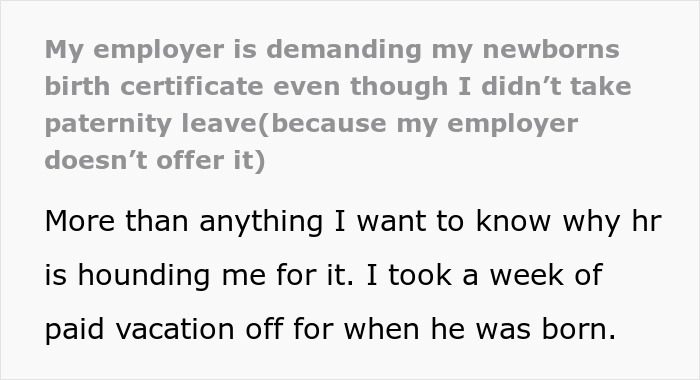
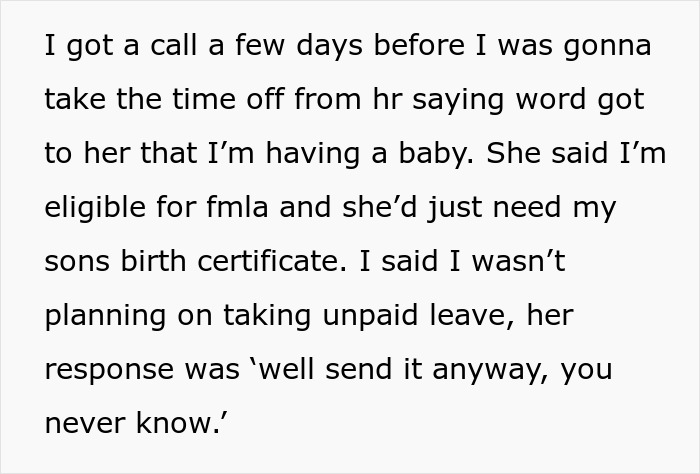
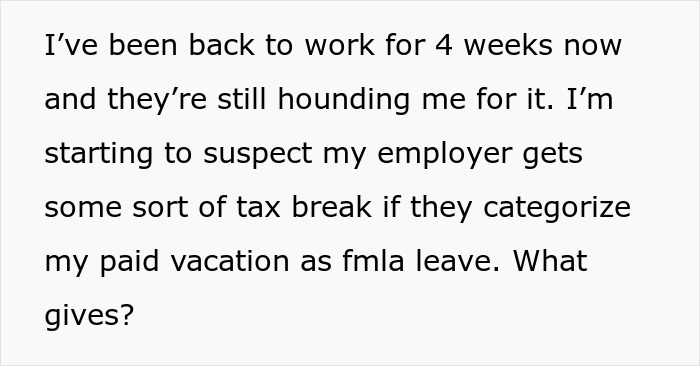

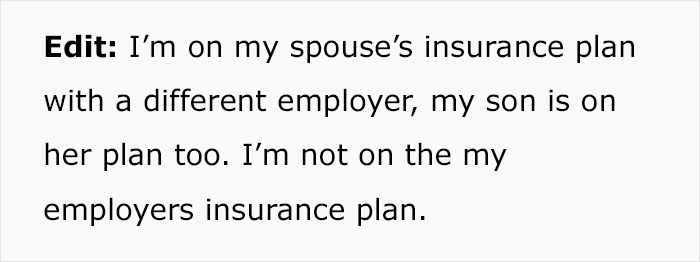
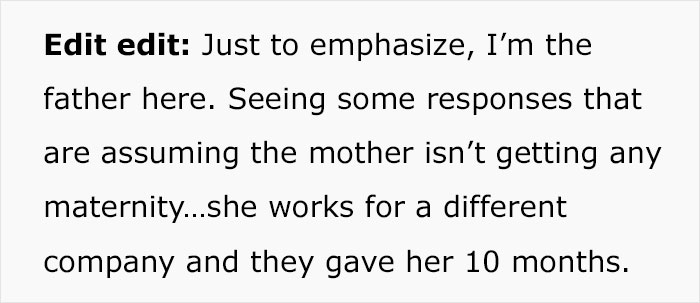


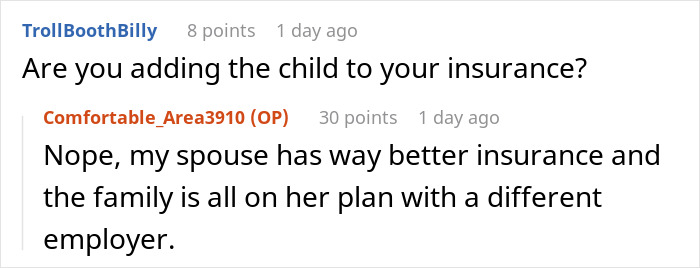
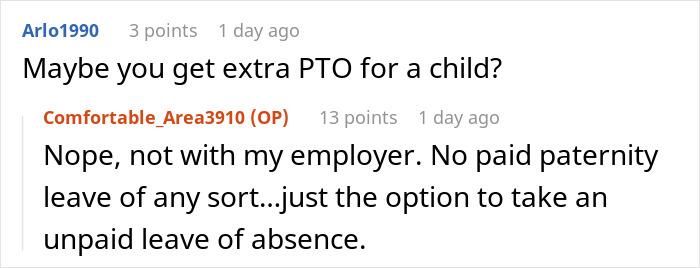
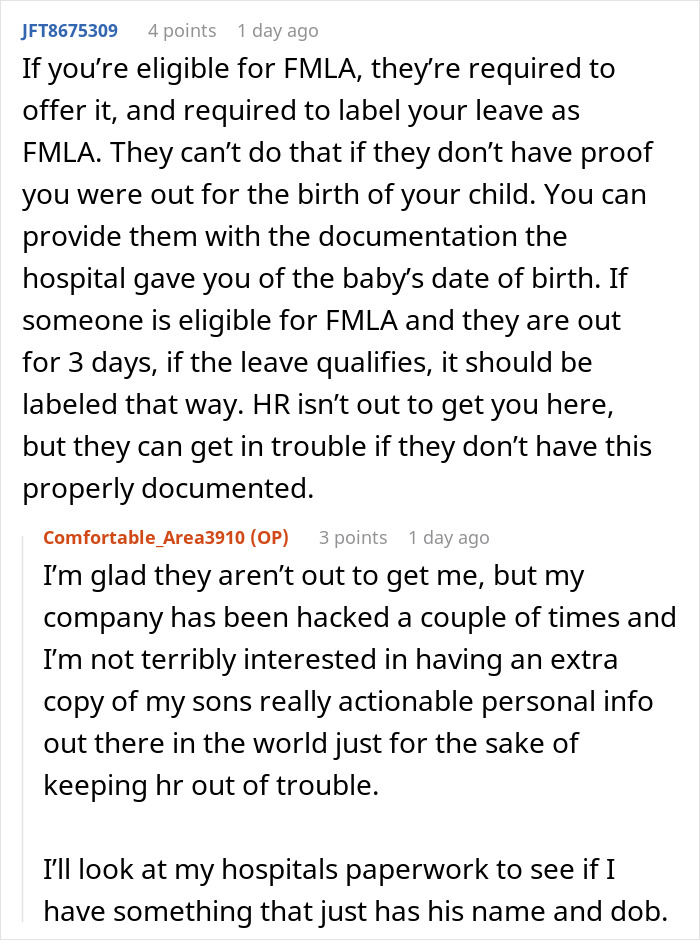
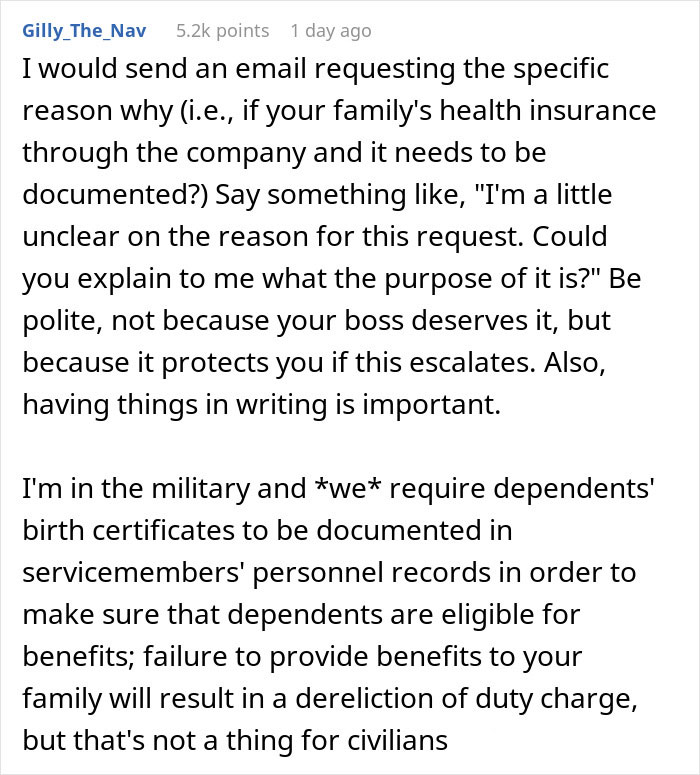
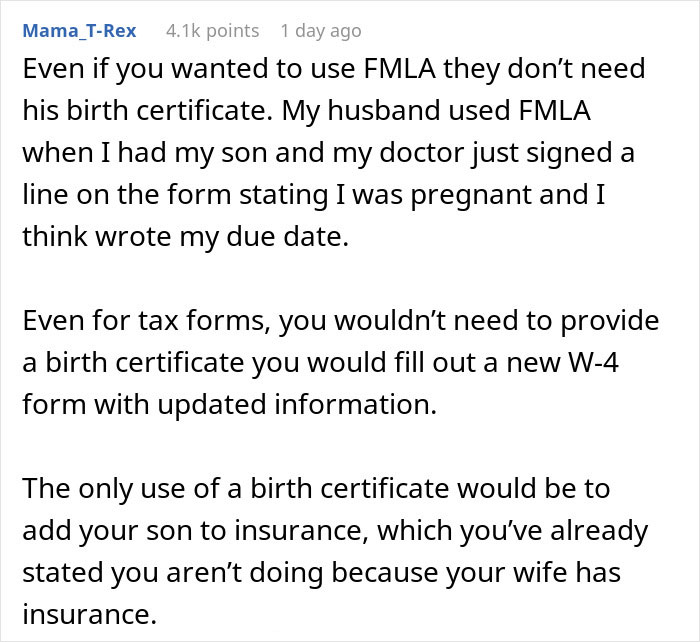
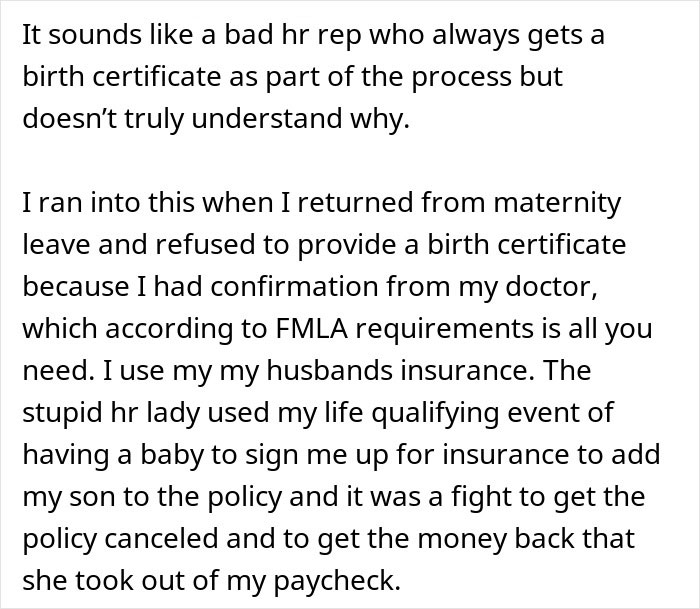
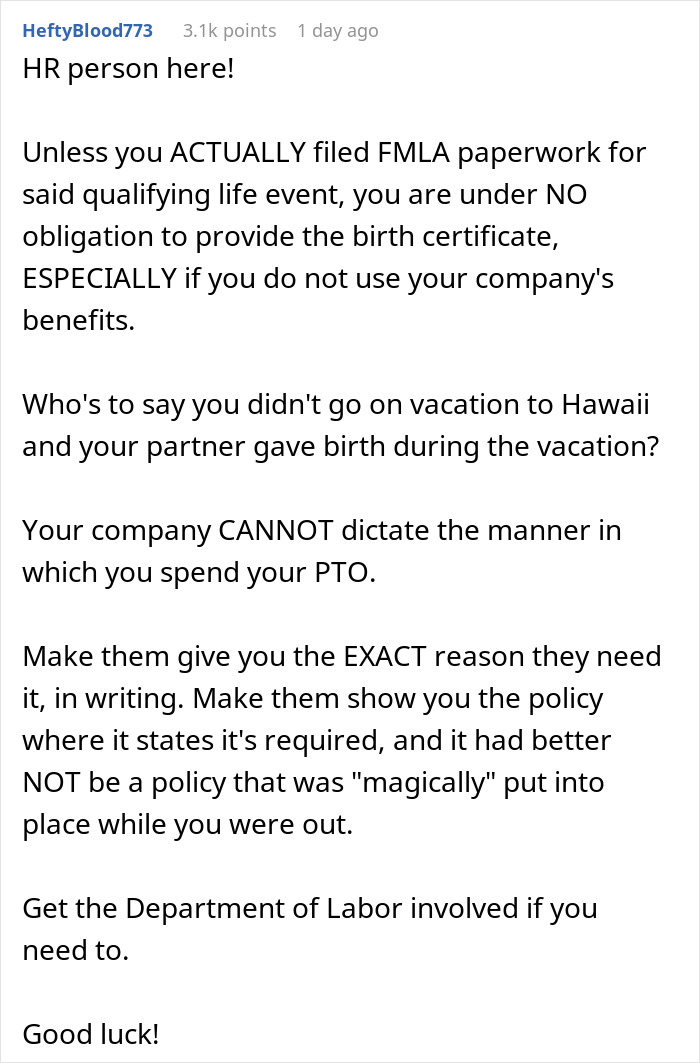


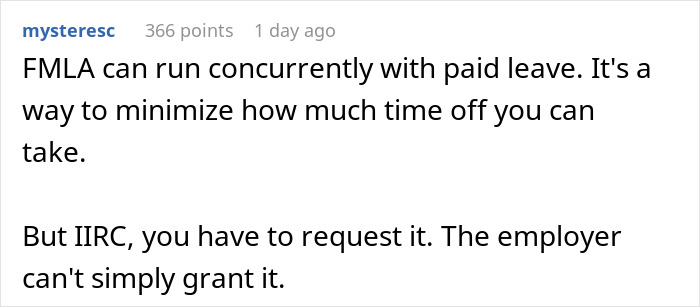

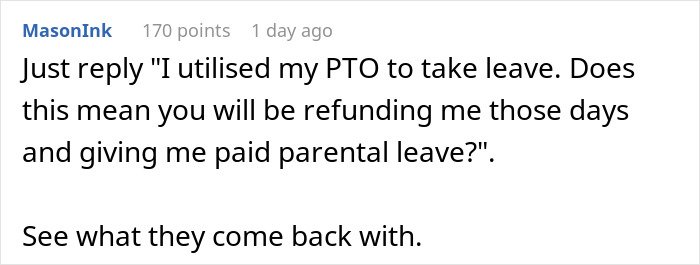

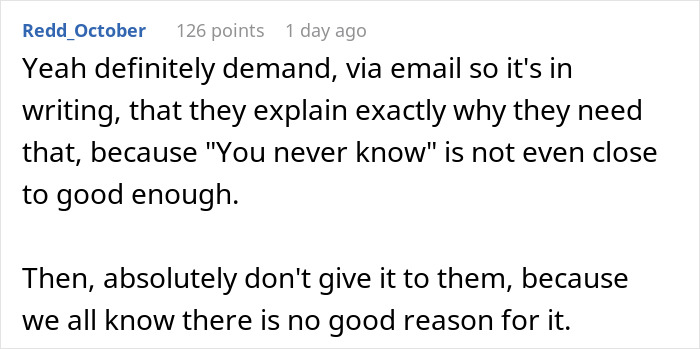





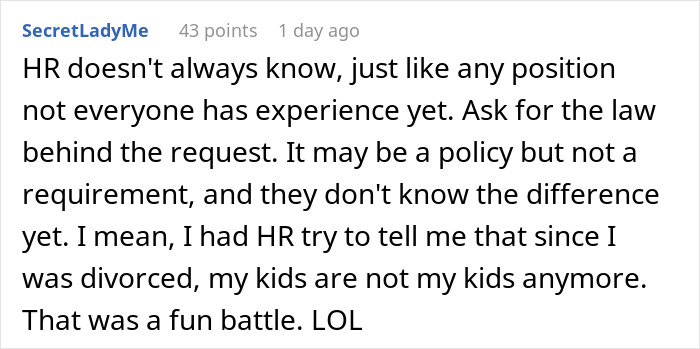


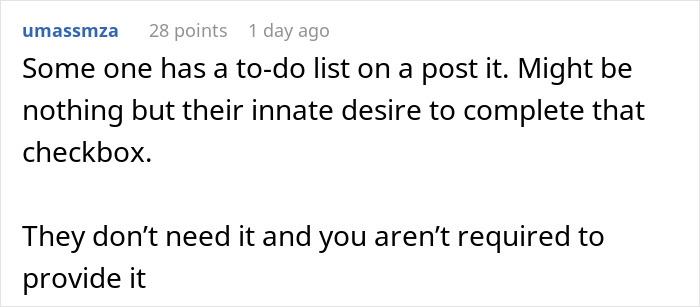
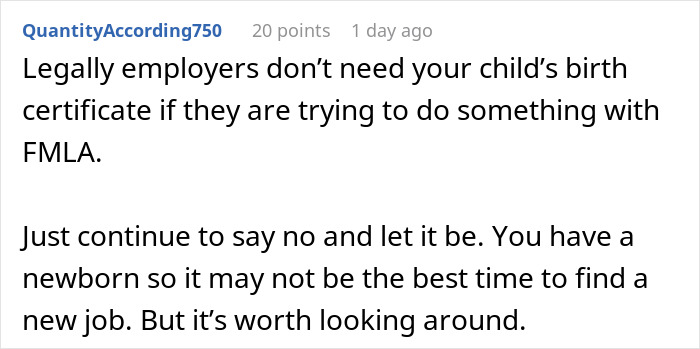
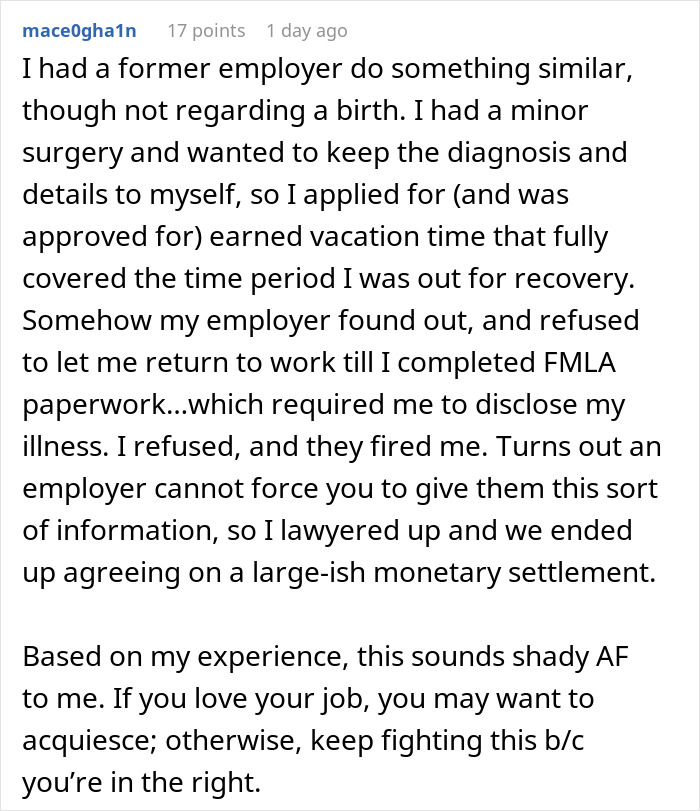














































101
35